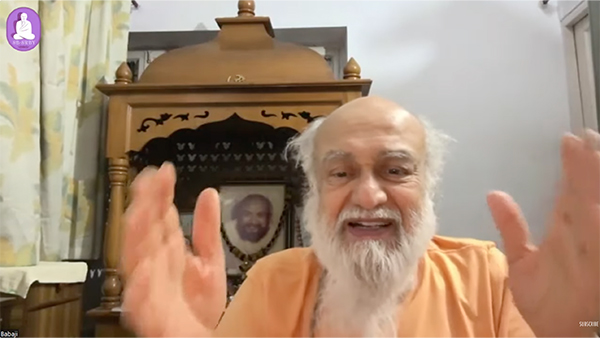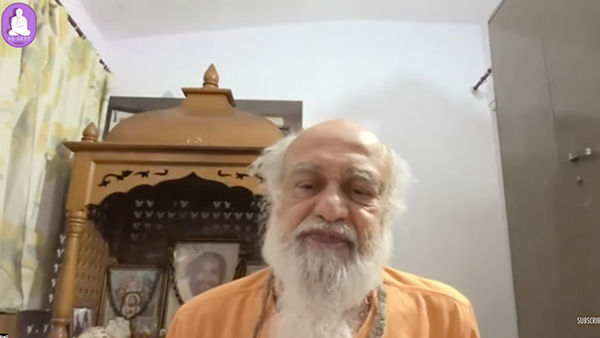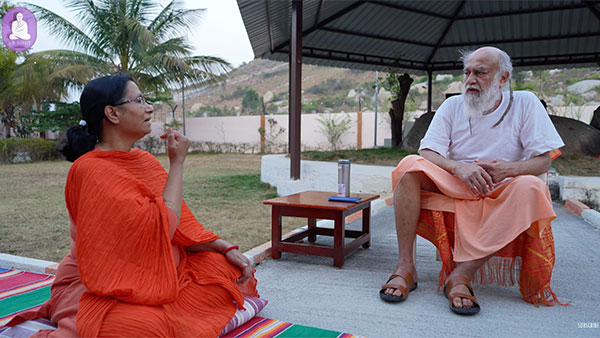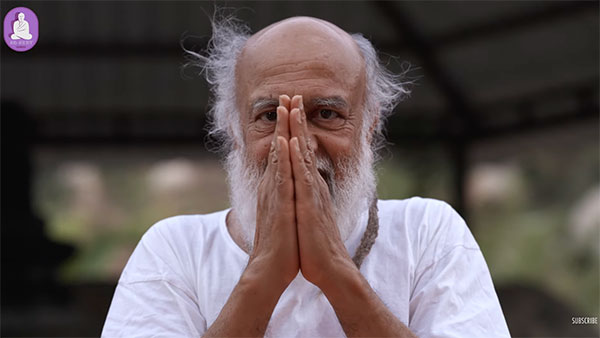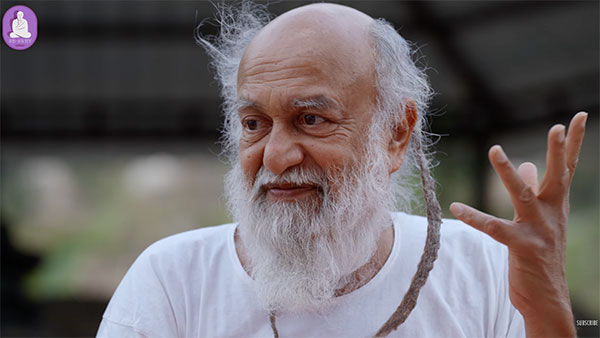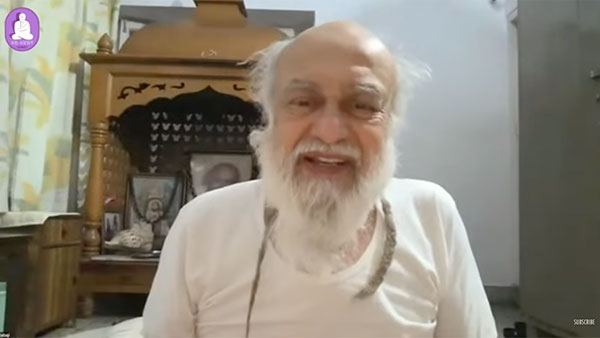Why Meditation?
Throughout history, Sages have advocated meditation as a means of establishing peace within ourselves. Currently, it is estimated between 300 and 500 million people globally practice some form of meditation.
Reasons for meditating vary widely, from stress management to God-realization. Science has well-documented the physiological, psychological, and sociological benefits of regular meditation. However, Shiva Rudra Balayogi teaches that the Supreme goal of meditation is Self-Realization and the lasting Peace that it brings.
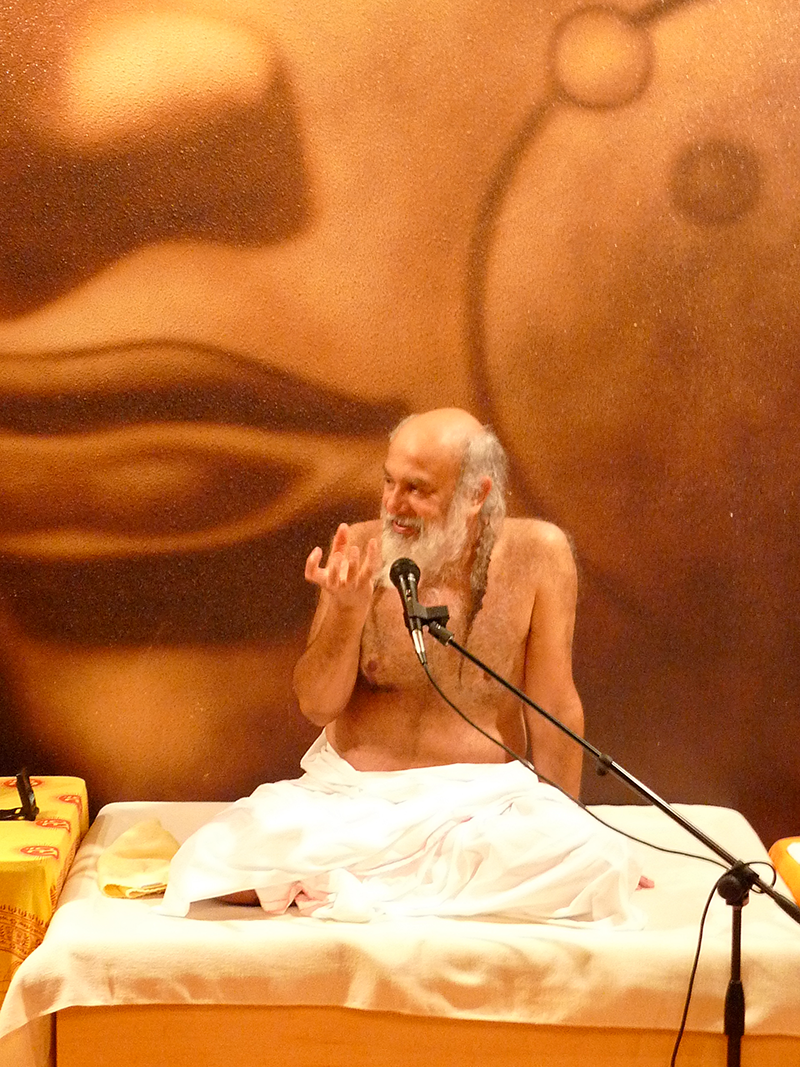
Understanding Meditation & its Benefits
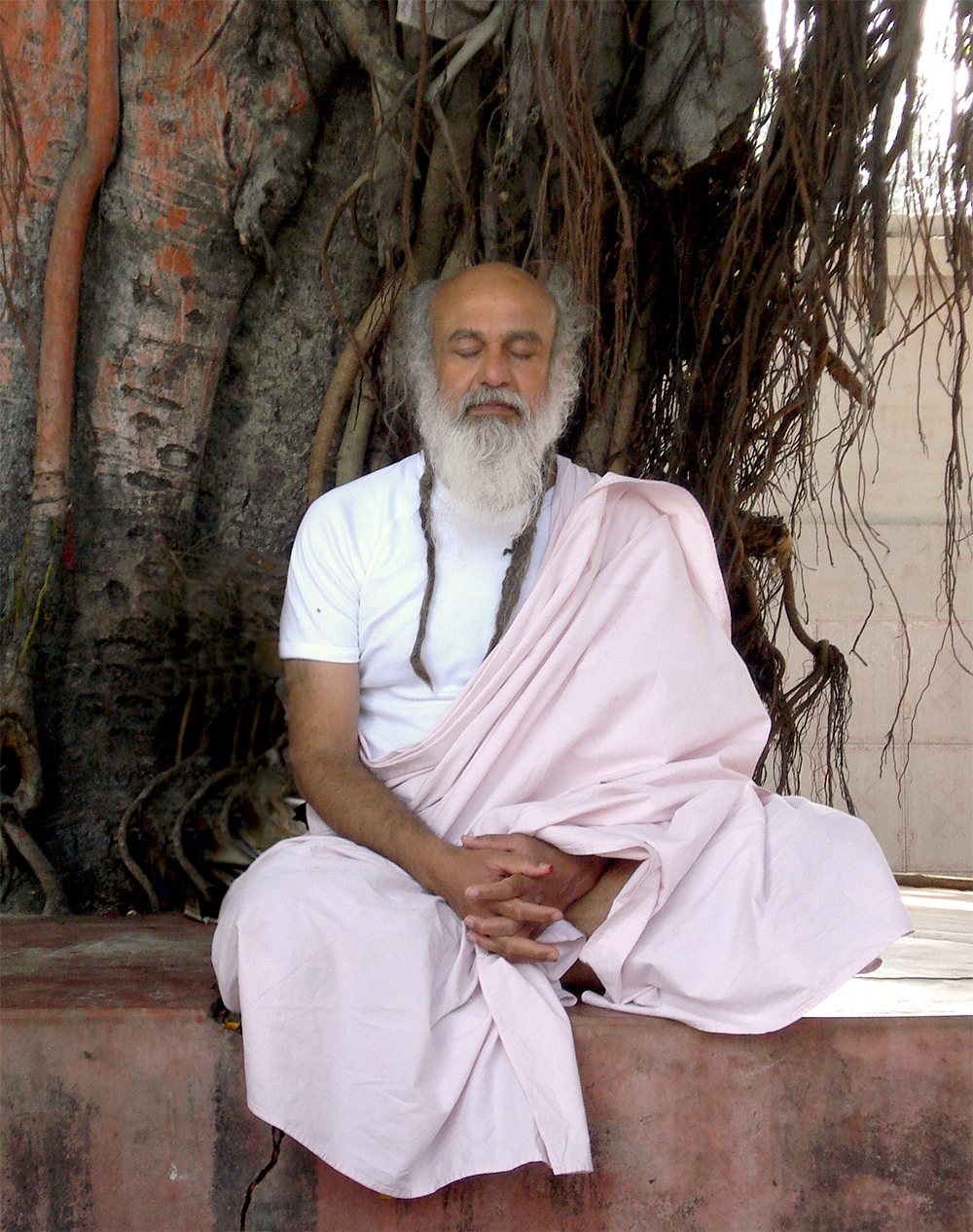
What is Jangama Dhyana (Meditation)?
‘Jangama’ means Eternal Existence; ‘meditation or Dhyana’ means focused, unwavering attention. Sages have practiced Jangama Dhyana for millennia to obtain fulfillment through Self-Realization.
It involves concentrating the mind and sight by gently focusing our attention between the eyebrows and simply watching without thinking, imagining, or engaging in thoughts and visions. Jangama Meditation is unique in that it does not give the mind an object, such as breath, sound, or vision, to focus upon in order to fix the attention. Focusing between the eyebrows without an object of focus is important for meditation to advance.
When the attention is deliberately fixed this way, thinking recedes, and our attention becomes absorbed in consciousness. If attention is not given to thoughts, they will disappear, and the mind will become silent. Universal Consciousness alone remains, which is recognized as the Self.
“When Consciousness becomes quiet, it becomes aware of itself. Until then, it is simply aware of what it is imagining. So that is why the imagination (thought) needs to be stopped. To stop the imagination, the meditation of watching is one of the greatest technologies. If you simply keep watching, you become a witness automatically. You won’t be doing anything else, all thoughts and visions disappear. As long as you are recognizing and analyzing, you are holding thoughts; you keep thinking, trying to come up with formulas and solutions to realize yourself. If you are searching for the truth of your Existence in this way, you are simply wasting your energy. The Truth is not visible.“
~Baba
Baba Shares the Meditation Instructions
A Quiet Mind is Necessary to Know the Self
The Jangama Meditation Technique
Jangama meditation is one of the highest techniques practiced since ancient times in India. No external anchor is used; the mind becomes quiet on its own. It must be practiced in a gentle way, not by forcing or in a rush. With a polite focus, the attention is brought to a single point.
This meditation is Universal, unrelated, or linked to any religion or belief system.
How to Meditate
To practice Jangama Dhyana, the meditation, Baba and his Guru, Shivabalayogi Maharaj, used for Self-Realization:
– Sit comfortably, keep your back and neck straight and close your eyes.
– Gently concentrate your mind and sight between the eyebrows, focus your attention there, and just keep watching.
– Do not think or imagine anything — JUST WATCH.
– Do not repeat any mantra or name.
– Keep the eyes closed until meditation is completed
In this meditation, you are asked to gently watch between the eyebrows and not give attention to what appears in your mind. When your attention drifts onto thoughts, gently bring it back to watching between the eyebrows.
Practicing this method gives the mind a way to remain quiet and under control. If the mind becomes quiet and concentrated, it automatically goes inward toward its origin and becomes absorbed in its Self — Consciousness.
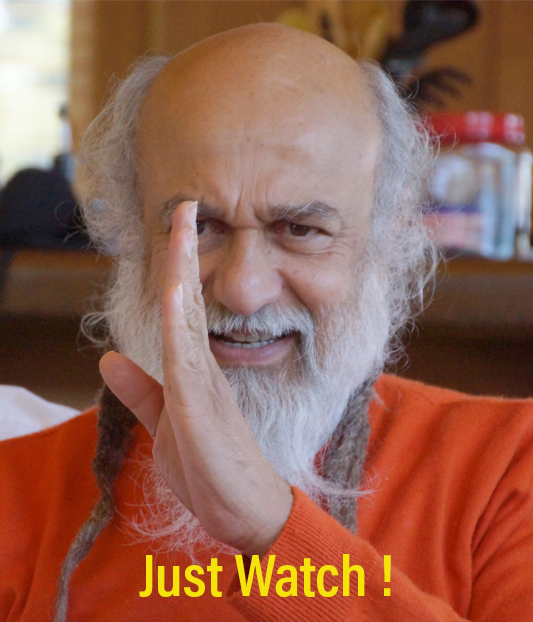
Insights & Meditation Tips
- Imagination and thinking hide your true identity. To know who you are, you must silence the mind.
- Thoughts are anything present in the mind. All imaginations, ideas, visions, sounds, feelings, sensations, and experiences are considered thoughts.
- The Self that is watching is not a thought; it is the Consciousness of Existence. You are not what appears in the mind.
- If focusing between the eyebrows is uncomfortable in the beginning, you may concentrate your attention at a point a few inches in front of your eyes. With continued practice, you will be able to watch comfortably between the eyebrows.
- Regarding the amount of effort used for focusing, Baba has said, don’t strain, be gentle, but you can be firm in your resolve, like you would be with a friend.
- The goal of meditation is to silence the mind. “Just Watch” is a technique for the mind to silence itself. If you are 100% watching, you cannot be thinking. Conversely, if you are thinking, you cannot be 100% watching.
- Any amount of meditation is beneficial. However, Baba recommends meditating daily for one hour or more. Twenty or thirty minutes is also fine to begin.
- Set a time of day and the length of time you wish to meditate and stick with it. Be regular; dedication is important. It takes time for meditation to become an effortless part of your daily routine.
- Avoid meditating on a full stomach; it can make you drowsy. It is recommended that you meditate before meals or 3 hours after.
- The mind is like a chatterbox, always talking; it can take most of a meditation period to settle down. In time, more and more silence will be with you throughout the day.
- Be patient. Your attention has been fixed on what is in your mind for your entire life. It takes time and practice to bring awareness back to itself—the Consciousness of Existence.
- Meditation energizes and rejuvenates the body and mind, making a person more effective and life more fulfilling.
- This form of meditation has been used for Self-Discovery for thousands of years. It is time-tested and very effective.
- Meditation benefits anyone who practices regularly, regardless of their beliefs. Although people are busy with life, few things produce a greater sense of well-being than the time invested in a regular meditation practice.
How to Meditate Q&As
Dedication, Discipline, and Patience are Important Mantras
DEDICATION
If you are DEDICATED, you will make daily meditation a priority.
If you are DISCIPLINED, you will practice every day without fail.
PATIENCE
If you have PATIENCE, you will definitely achieve the goal.

